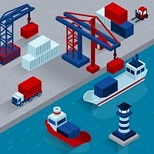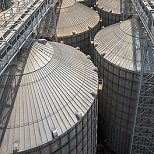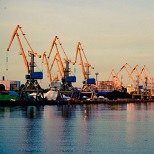Sanctions & liability for Calling at Crimean ports: update - August 2015
On 27 March 2014, the UN General Assembly adopted the Resolution “On Ukraine’s Territorial Integrity” calling on Member States, international organisations and agencies not to recognise any change in the status of the Crimea and the City of Sevastopol. Furthermore, Ukraine officially closed sea ports located in the territory of the Crimea for international navigation by the Order of the Cabinet of Ministers of Ukraine No. 578-г of 30 April 2014.
On 4 July 2014, the State Inspection of Ukraine on Safety in Maritime and River Transport prohibited foreign-flagged vessels’ entry into Yalta, Kerch, Sevastopol, Yevpatoria and Feodosia. Since that time, the above-mentioned State Inspection has carefully monitored foreign-flagged vessels’ calls at Crimean ports and, for the month of June 2015, reported more than 200 such vessels calling at Crimean ports.
On 4 June 2015, the Resolution of the Cabinet of Ministers “On the Order of entry to the temporarily occupied territory of Ukraine and exit from it” was adopted. It is worth noting that, according to the position of the Ukrainian General Prosecutor’s Office, this Order regulates the entry/exit of individuals across the administrative (land) border of Ukraine, but the Order does not regulate vessels\' crossing of the Ukrainian sea border. Consequently, no official act regulates vessels’ entry into/exit from territorial waters of Ukraine by the Crimea.
Internationally, a number of states, in particular of the EU and the US, have adopted specific legislation (sanctions) against the annexation of the Crimea.
The first package of sanctions against the Crimea was introduced on 23 June 2014 lasting for a one year period. Initially, such sanctions concerned the imports of goods for Crimean infrastructure projects and investments. In December 2014, a ban was introduced on exports of several products and technologies as well as tourist services (meaning that, for example, European cruise ships are not allowed to enter seven ports of the peninsula – Kerch, Sevastopol, Yalta, Feodosia, Yevpatoria, Chernomorsk and Kamysh-Burun). On 23 June 2015, EU sanctions against the Crimea and Sevastopol were extended for another year.
It should be noted that restrictions are imposed on the import into the EU of products produced on the peninsula, on investments by European companies in the Crimea and Sevastopol and on tourist services and the export of certain goods and technologies from the Crimea (in particular within sectors, such as transportation, telecommunications and energy).
The Office of Foreign Assets Control (OFAC) has issued an important Crimea Sanctions Advisory to highlight some of the means that have been used to circumvent US sanctions involving the Crimea. Executive Order 13685 "Blocking Property of Certain Persons and Prohibiting Certain Transactions With Respect to the Crimea Region of Ukraine" prohibits virtually all direct and indirect transactions (including financial, trade, and other commercial transactions) by US persons or within the US to or from Crimea unless authorised by OFAC or exempted by statute.
The evasive practices identified by OFAC include the omission or obfuscation of references to Crimea and locations within Crimea in documentation underlying transactions involving US persons or the US. US persons and persons conducting business in or through the US should be aware of these practices in order to implement appropriate controls commensurate with their OFAC sanctions risk profile, and to ensure compliance with their OFAC obligations.
Countries, such as Canada, Australia and Japan, have also introduced penalties.
It has recently come to light that “Kerch Commercial Sea Port" exerts itself to control both the Strait of Kerch and the Kerch Canal, putting pressure on vessels transiting to and from the Sea of Azov.
Canal dues for such transits are now requested to be paid to the Kerch port authorities. However, payment to the “Kerch Commercial Sea Port” would constitute payment to a sanctioned entity and would therefore technically be an act in breach of the sanctions.
Although, there is still no clear position on the part of the Ministry of Infrastructure of Ukraine regarding the issue of passing the Kerch-Enikal’skiy Channel, the M/V “ULUS SKY” was arrested on 8 June 2015 due to the use of pilot services and the suspicion of bunkering on the outer parts of the closed sea port of Kerch.
Consequently, shipowners should show caution in the Strait of Kerch.
Published in IBA.

Probing Virgin Ground: Worries of international consultants in Ukraine Ukraine’s long proclaimed struggle for the foreign direct inve...
.jpg)
Ukrainian Law on Inland Water Transport Finally in Force President of Ukraine Volodymyr Zelensky has signed the Law on In...

Feasibility study for the concession of the container terminal “Chornomorsk” ready in early 2021 The working Group on the implementation...
 November Transport, Shipping & Port News2020.12.04
November Transport, Shipping & Port News2020.12.04Dear Reader! Our monthly digest is confined to ports, terminals, shipping and transport of Ukraine. Ukrzaliznyts...

Ukraine as a littoral state commanding most of the Black Sea north coast along with the Azov Sea north occupies a strate...
 Opportunities in the Ukraine2019.07.10
Opportunities in the Ukraine2019.07.10At the moment there is a concession pilot project conforming to European norms under way for the public stevedoring companies in Olvia (form...
 Endgame or a Path to Possibilities?2019.05.24
Endgame or a Path to Possibilities?2019.05.24Ukrainian port industry is growing rapidly and the upcoming vote for concession legislation should only confirm this trend. ...

1. Who’s pushing? The acting Cabinet of Ministers led by Volodymyr Groisman initiated the draft law development in summer 2016. The EBRD...
 A step in the right direction2018.08.27
A step in the right direction2018.08.27For years, it has been the worst-kept secret for any foreign investor that port concession tender conditions in Ukraine were often drafted t...

Until recently, investing in Ukrainian port infrastructure was considered quite risky, due to an outdated regulatory framewor...



 Odessa, 65014, Ukraine, 1 а, Gretska St
Odessa, 65014, Ukraine, 1 а, Gretska St
